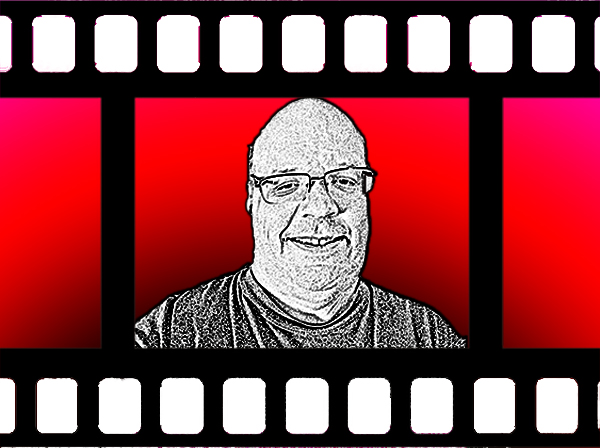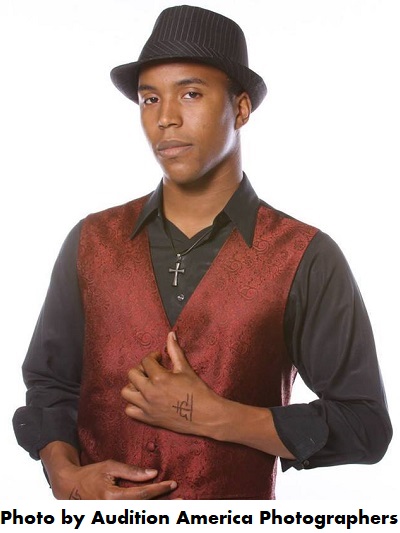
Jonathan Ranard Cartwright
Interview
Music, Horror and the Embrace of the Hyphenate: The Ambitious Drive of Jonathan Ranard Cartwright to be all in the Media World
By Kevin Nickelson
Italian horror helming legend Luigi Cozzi once told me that the best experience to learn about film creation 101 is to get any job on a film shoot and work your way up. Forget the classroom. The soundstage is where it’s at. I continue to be amazed at just how many young artists fully accept this methodology. While it may be true that this angle is often explored through sheer necessity and lack of budget (when you’re unknown and are budgeting through your own maxed out credit card, hiring a Director of Photography can be a daunting task!), it still impresses me how many obstacles the new filmmaker is willing to hurtle over to achieve their dream. One such young talent who accepts this challenge head-on daily, is Jonathan Ranard Cartwright. With boundless energy and relentless determination (yet always maintaining a goofy smile and endearing charm), Mr. Cartwright is looking to turn the music and horror film worlds on their ear. I am fortunate to be able to catch up with the on-the-go young man for an interview.
KN: Born and raised in Fort Lauderdale, currently living in Orlando, it would seem you were the child eager to experience creativity in arts of all kinds growing up. While I did not grow up with music in my blood, I did have obsessions for film, horror films in particular (fanned by my father). I was moved to pursue acting when I saw my idol Christopher Lee explode on the screen as Dracula. Can you shed some light on your childhood, if you will, and who your muse or inspiration was in pursuing a love of music and film?
JC: My music inspiration in my early childhood life was mostly soundtrack themes from Disney movies to some of the Universal pictures (including E.T., Jurassic Park and Jaws). And my childhood movies that I grew up watching ranged from E.T., Alien, Monster Squad, Jaws, Star Wars and Jurassic Park.
was mostly soundtrack themes from Disney movies to some of the Universal pictures (including E.T., Jurassic Park and Jaws). And my childhood movies that I grew up watching ranged from E.T., Alien, Monster Squad, Jaws, Star Wars and Jurassic Park.
KN: With a birth date of October 8, 1988, your true growth experience in the arts would be in the late 90s and early 2000s. At just about this point there seemed an explosion of musicians venturing into film directing. While this is not entirely new (classic crooner Frank Sinatra took a stab with the 1965 None but the Brave and Bob Dylan less successfully with the 1978 Renaldo and Clara), the surge really came on in the late 80s and on into the 90s, 2000s and today. Yet very few make the transition from music straight into the horror genre as you seek to do. Much more so it is the music video director who turns to the chiller genre. Russell Mulcahy is one (1984’s Razorback and 1998’s Tale of the Mummy) as is Dominic Sena (2011’s Season of the Witch). Of that, very few have ever gone from music performer to director. In fact, only Rob Zombie comes to mind (2003’s House of 1000 Corpses, 2005’s The Devil’s Rejects and the ’07 Halloween reboot among many examples). Do you think there’s some special connection between music and horror movies that transcends other genre films?
JC: Well, it is a possibility that some music can connect to other genres including horror films. The most important role (of music in the horror film) comes when we have to discover that someone in the story who is a hero and the other who is the killer, monster or a villain. It’s when the composer has to sit and look at the scene from any movie making and find the appropriate music piece fit for the mood.
KN: Back to your life trajectory toward the arts as it were, it seems you knew what your calling would be just launching right out of school. Your resume suggests that you felt a need to learn as much about tech in the arts as the creative arenas of singing and acting. Studying 3D animation and Digital Audio Projection at Orlando Tech, all while also becoming a vocalist at the Greater Orlando Actor’s Theatre. I understand you had begun taking music classes even in grade school. Was it your intent to learn all levels of creating a media product to help build your career?
JC: Yes! Ever since after high school, I was enrolled to join for the Orlando Opera Theater while attending Orlando Tech for both 3D Animation and Digital Audio Programming back in 2007 to 2010.
KN: 2015 saw completion of your first two music video shorts, Fading Moon and Streetlight under your performing name of Everlasting Victory. Fading Moon is an interesting contrast. Here it has Dennis the Lital who has this power and desire to dance for people who are of good heart on Christmas, yet you film in black and white as if to present a certain ethereal, dark netherworld. What emotion or undertone were you seeking with this? Describe all the work done behind the scenes as well and how this short came about?
JC: I first started off on wanting to do this in black and white, inspired from one of my favorite artists named Woodkid. He describes how each story, in every human figure, can be all black and white even if the world can be cruel most of the time. But, with a little help from magic and miracles, true colors of life can appear. Which is what I wanted to show for both Fading Moon and Streetlight.
KN: Then you had the sublime, magnetic and darker Streetlight, which deals with a love triangle, jealousy and murder. All filmed, once again, in this black and white nether region nightmare world. Was this an idea that came out of a fever dream or nightmare you had? I get the feeling that examining raw emotions such as love and jealousy are what drive you as an artist.
JC: To me, it’s more of a fever dream which has a comparison to some love stories that deal with one female in love with two males at once (even though the two guys are best friends). It brings attention to today’s society when it comes to someone who can be aggressive toward another. They thought they could love each other. Ultimately, though, you feel like you are nothing to them.
 KN: Your most recent video, Light/Dark is, perhaps, your most ambitious in your use of digital effects. Quite the mix of stark imagery, animation, garish red and chromatic tone colors. Simply your boldest visuals to date to match your energetic pulse of the underlying song. Explain the impetus behind this video.
KN: Your most recent video, Light/Dark is, perhaps, your most ambitious in your use of digital effects. Quite the mix of stark imagery, animation, garish red and chromatic tone colors. Simply your boldest visuals to date to match your energetic pulse of the underlying song. Explain the impetus behind this video.
JC: Well, the story behind this video is this: I wanted to create a true theme for the album (even though I only featured both me and Andre by that time before we found Ernie, our official drummer). The dynamic of creating the animation took me over three months till the final call was made.
KN: I see also that you are not satisfied with the number of hyphenate titles attached to your name. Not only are you a singer-composer-director-writer-cameraman-producer-editor-sound guy (do you also do the donut and coffee run for the cast and crew? LOL) but you are also CEO for your company Twilight Production Studio. First of all, do you ever sleep? Secondly, is this a thinking of you wanting to be involved in every aspect of the production so that it’s clearly your vision?
JC: Ugh… LOL! Well, most of my friends and family see me as the next Steven Spielberg and Beethoven type of guy. I’ve been thinking of running my own company for a long time (since I was young) and had more experience of getting to know the entertainment industry, both national and international-wise. But, even when working with cast and crew members, I do spend free time buying food and drink (or even cook great food) for them.
KN: Your first horror short, Demu, is due out in 2020. To generate the interest in it (a whetting of the fan base appetite as it were), you’ve created two Cold Case Video Files where we get a hint of the terrors to come. A camera man and on-air talent are investigating disappearances and supernatural occurrences in this footage totaling just over two minutes. Describe how the gestation of the Demu idea came about, the idea behind turning these documentary-esque shorts into an ad promo of sorts for the upcoming short?
JC: I came up with the idea for my album Light/Dark for two reasons. One, I wanted to continue the story by branching out as an upcoming cinematic universe franchise. Two, I wanted to create my own scary pasta video clips that can have a better attention for both my fans and the audience to believe that this is a real deal story. To have them experience a newer type of scary film that will last for the next 50 years. Oh, and we’ve changed our release date to 2021.
KN: In addition to Demu, what is next for Everlasting Victory AKA Jonathan Ranard Cartwright? Other than what I expect to be notice from the Grammy and Oscar communities?
JC: Music-wise, I will be continuing to make new hit albums that are kind of related to the last while introducing a different story-telling which, for myself and my two 3d band members Andre and Ernie, will change our future look. As for film-wise, I’m already jump-starting on my phase one journey for the franchise by directing a second film but with a different story and genre.
KN: Final question is one that I ask every one of my interview guests. What kind of advice would you give the second grader who dreams to work in both the music and horror film realms?
of my interview guests. What kind of advice would you give the second grader who dreams to work in both the music and horror film realms?
JC: Be yourself. Be more original and open minded with your dreams and ideas. Don’t let anyone turn you down on your future goals in both film and music creation. Because I want every child in the next 30 to 50 years to become someone much greater and awesome in life.
KN: With the kind of positive attitude and skill Jonathan exudes at every turn, there is no doubt in my mind as to two things: that he will succeed beyond even his own expectations and that the future of both the independent film and music mediums is in good hands with gifted artists like him involved. My thanks to Jonathan Ranard Cartwright for agreeing to this interview. Here’s hoping his victory remains everlasting.


